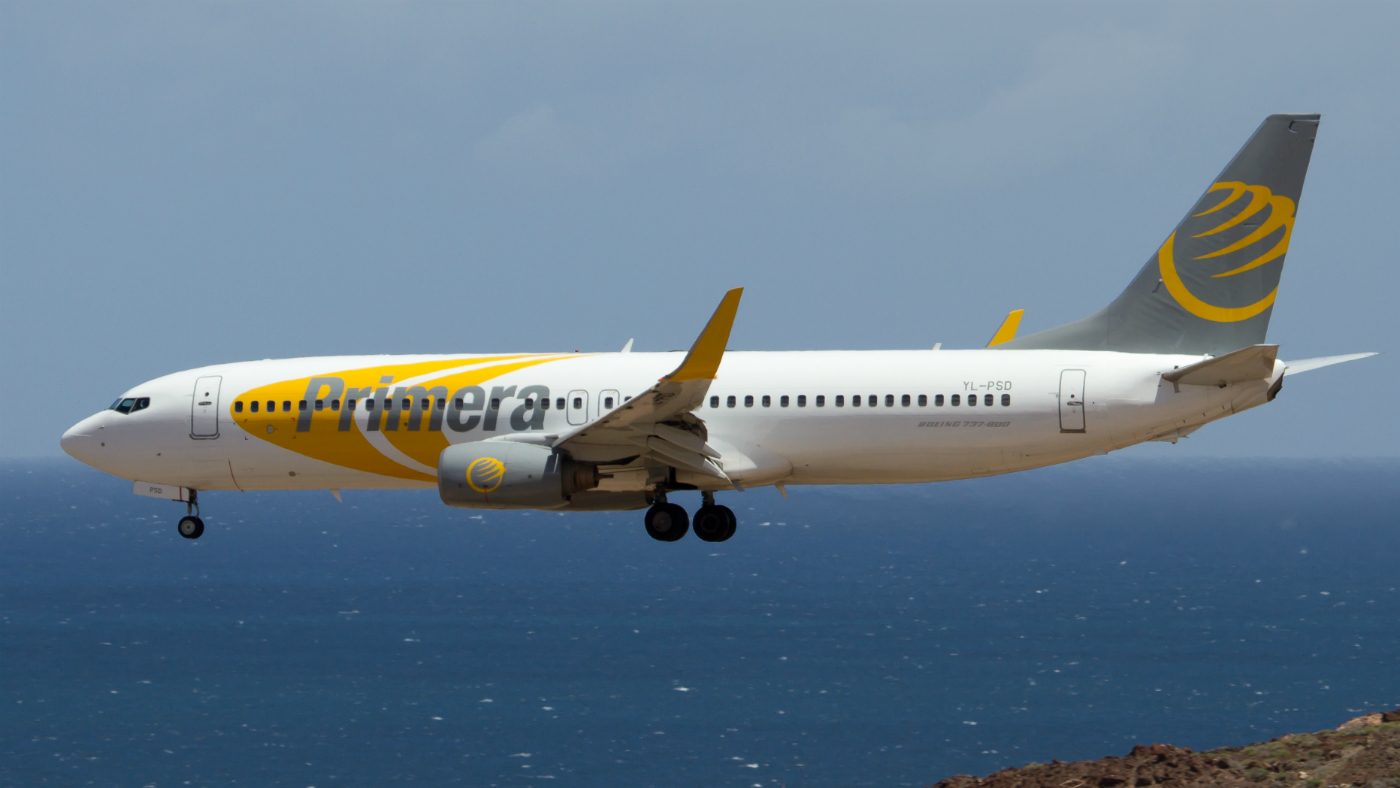Primera Air: passengers stranded as budget airline collapses
Stansted Airport seizes aircraft over unpaid fees as Danish carrier declares bankruptcy

A free daily email with the biggest news stories of the day – and the best features from TheWeek.com
You are now subscribed
Your newsletter sign-up was successful
Budget airline Primera Air has halted all operations and is expected to file for bankruptcy today, leaving hundreds of passengers stranded across Europe and the US.
The Danish airline, which launched as a charter company in 2003, announced on its website on Monday that it would “cease all operations on the midnight of October 1st”. The collapse came as an “enormous disappointment after the incredible hard work and dedication put into building the airline”, it continued.
“The company wants to sincerely thank all its employees for their hard work and dedication, its clients for years of loyal support and its suppliers for their cooperation during the years,” the statement concluded.
The Week
Escape your echo chamber. Get the facts behind the news, plus analysis from multiple perspectives.

Sign up for The Week's Free Newsletters
From our morning news briefing to a weekly Good News Newsletter, get the best of The Week delivered directly to your inbox.
From our morning news briefing to a weekly Good News Newsletter, get the best of The Week delivered directly to your inbox.
Primera Air offered budget transatlantic flights from around £99 between London Stansted Airport and New York, Boston, Washington DC and Toronto, alongside flights to multiple European destinations. It had also run flights out of Birmingham International Airport to seven destinations in Europe and the US, but announced in August that it would be cancelling all routes from the airport due to budgetary constraints, the BBC reports.
Stansted is telling Primera Air passengers not to go to the airport and says that it plans to seize a Primera aircraft because of unpaid bills.
Airline analyst Alex Macheras told the BBC that the airline’s growth “simply wasn’t sustainable”, and that “the general feeling in the industry” had been that “the airline was travelling a bit too fast in terms of their expansion with a fleet of that size”. The company had built up its fleet to 15 planes.
The collapse of the airline has left passengers stranded in multiple countries, and many may be forced to pay the full fare for a flight home with a different airline, The Guardian reports.
A free daily email with the biggest news stories of the day – and the best features from TheWeek.com
The London Evening Standard says that passengers’ claims for a refund will “depend on how [they] purchased the flight”.
“If you booked through a travel agent, then you may be covered by Atol protection,” the newspaper says. “If you purchased the flight directly then normally this will not be covered by the Atol scheme.”
The Standard also suggests that passengers “may be able to claim the cost of the flight back through the Consumer Credit Act” by contacting their bank, but adds that “to be eligible for this, the flight has to cost more than £100 and been paid for with a credit card”.
“If you have Atol protection, then you must find an alternative flight home and need to contact your travel agent. If not, then you will need to book flights and pay for them out of your own pocket,” the paper warns.
In a leaked internal email obtained by Sky News, Primera’s director of operations, Anders Ludvigson, said that the airline would file for bankruptcy on 2 October and that any crew members currently abroad would be found accommodation and a route home.
-
 Quentin Deranque: a student’s death energizes the French far right
Quentin Deranque: a student’s death energizes the French far rightIN THE SPOTLIGHT Reactions to the violent killing of an ultra-conservative activist offer a glimpse at the culture wars roiling France ahead of next year’s elections.
-
 Secured vs. unsecured loans: how do they differ and which is better?
Secured vs. unsecured loans: how do they differ and which is better?the explainer They are distinguished by the level of risk and the inclusion of collateral
-
 ‘States that set ambitious climate targets are already feeling the tension’
‘States that set ambitious climate targets are already feeling the tension’Instant Opinion Opinion, comment and editorials of the day
-
 Companies are increasingly AI washing
Companies are increasingly AI washingThe explainer Imaginary technology is taking jobs
-
 Why is pizza in decline?
Why is pizza in decline?In the Spotlight The humble pie is getting humbler
-
 How prediction markets have spread to politics
How prediction markets have spread to politicsThe explainer Everything’s a gamble
-
 SiriusXM hopes a new Howard Stern deal can turn its fortunes around
SiriusXM hopes a new Howard Stern deal can turn its fortunes aroundThe Explainer The company has been steadily losing subscribers
-
 How will China’s $1 trillion trade surplus change the world economy?
How will China’s $1 trillion trade surplus change the world economy?Today’s Big Question Europe may impose its own tariffs
-
 Job hugging: the growing trend of clinging to your job
Job hugging: the growing trend of clinging to your jobIn the Spotlight People are staying in their jobs longer than ever
-
 Is Trump America's CEO?
Is Trump America's CEO?Talking Points The party of free enterprise turns to 'cronyism'
-
 Why 'faceless bots' are interviewing job hunters
Why 'faceless bots' are interviewing job huntersIn The Spotlight Artificial intelligence is taking over a crucial part of recruitment